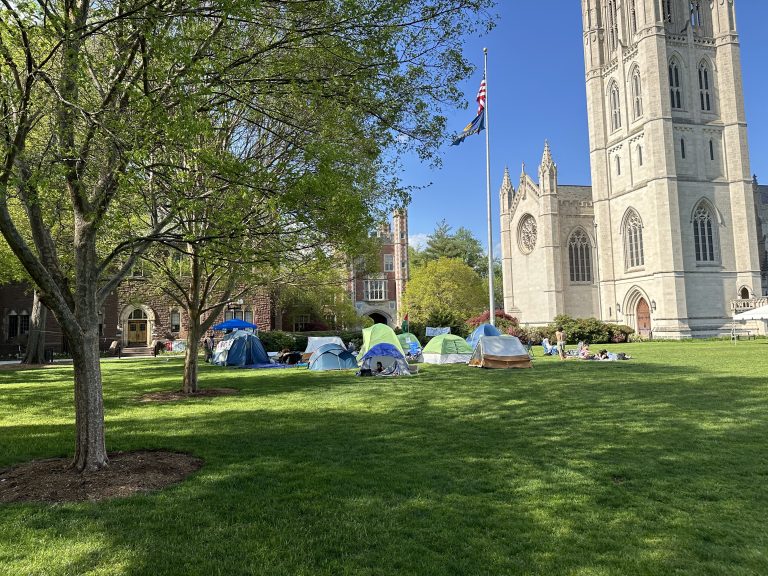Dylann Hanrahan ’25
Staff Writer
The UN Humanitarian and Emergency Relief Chief Martin Griffiths says Sudan is facing “one of the worst humanitarian nightmares in recent history.” The U.S. State Department said this week that the Rapid Support Forces have “intensified” shelling near Nyala, South Darfur, and Karari Omdurman. Reuters reported as of Oct. 26, that Paramilitary RSF say they have seized Nyala, Sudan’s second largest city which also contains military bases. Sudan’s army says it is planning to withdraw ceasefire talks with the Rapid Support Forces, before they have even begun. Just hours before the talks, which were an invitation from Saudi Arabia in Jeddah, the Sudanese Armed Forces said that the reason they were resuming talks is because they wanted to ease the humanitarian suffering, but they will continue to fight the paramilitary Rapid Support Forces.
The Washington Post writes, “With the conflict grinding into its sixth month, many Sudanese people and their supporters around the world are growing frustrated as the East African nation struggles for its share of international relief budgets and to remain on the global aid agenda.” Nearly two years ago the Sudanese Armed Forces and RSF temporarily joined sides to “oust” the country’s first civilian-led government in many years. The two forces were on track to sign a power sharing deal, but instead brutal fighting broke out.
Sudan is enduring two separate conflicts, the first being between Burhan and Hemedti in Khartoum, and the second is in Darfur. Sudan’s capital, Khartoum, and other urban areas in the country, are now bloody battlefields wreaking havoc on civilian life and infrastructure. One of the worst affected regions is West Darfur, where ethnically motivated attacks have killed many. Since the conflict began on April 15, a series of conflicts have broken out around the country, with more and more militias getting involved. CNN exclusively reported that Ukraine’s special forces were “likely” behind drone strikes on Wagner forces in Sudan.
Many hospitals and doctor’s offices have closed due to a lack of basic necessities. The UN Refugee Agency stated that more than 1,200 children under age 5 have died in camps in Sudan in the past five months due to measles and malnutrition. The UN Humanitarian Officials stated that 6.3 million people are “one step away from famine.” According to the World Food Programme, one in five children are malnourished and 90% of families say they are going days without eating.
The UNHCR estimates that more than 5.4 million people have fled or been displaced in Sudan since the unrest in April. The U.S. earlier this month announced they would send around $130 million in additional assistance for Sudan. To put this number in perspective, the United States has directed more than $113 billion to Ukraine. Due to this, many think-tanks have prompted that the West’s muted response is not unusual for political and humanitarian crises in the Global South.
Additionally, outbreaks of cholera and dengue fever have been reported in eastern Sudan, the region in which thousands of people are sheltering in very overcrowded camps. The last cholera outbreak in Sudan in 2017 killed 700 and sickened 22,000 people in less than two months. The World Health Organization has reported the number of cases of dengue fever and cholera currently, but they relayed that the real number is much higher as they are only reporting those who seek treatment in hospitals.
Killing, violence and internal displacement have occurred since fighting began in April between the Sudanese Armed Forces and the paramilitary Rapid Support Forces. In September, the United States placed sanctions on former Sudanese foreign minister Ali Karti, accusing him of standing in the way of efforts to bring about a ceasefire. Karti is currently secretary general of the Sudanese Islamic Movement. Reuters shared in a publication in late September, “Karti’s Sudanese Islamic Movement issued a statement saying it sought stability for Sudan and that sanctions imposed by the United States were a ‘badge of honour.” Humanitarian workers in Sudan have said they are trying to “prepare for the apocalypse.”









+ There are no comments
Add yours